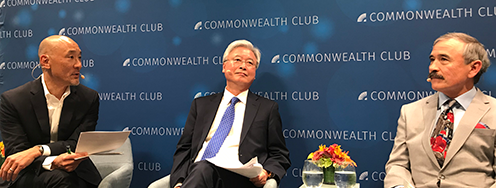Cutting the Nuclear Budget Burden
Nuclear weapons programs once enjoyed a relative sanctuary from budget pressures. But things have changed. Policymakers are looking to cut programs that do not advance our national security. At $700 billion over ten years, the nuclear budget has become a prime target for cutting waste and excess.
The New York Times said it best this week when it argued that the Pentagon must reduce the amount it spends each year “building new versions of Cold War weapons systems ill suited to America’s 21st-century military needs.”
The nuclear triad of submarines, ICBMs, and nuclear bombers are striking examples of weapons that the Cold War left behind. Yet the Pentagon plans to spend $125 billion over ten years to sustain or replace each part of that triad. It is not clear why. As former Vice Chairman of the Joint Chiefs Gen. James Cartwright noted, the Pentagon has not “exercised the mental gymnastics” on what nuclear systems are necessary for American national security.
Nuclear budgets are growing independent of strategies intended to inform them. This increase is a significant burden – sapping resources from more effective security programs.
In our updated working paper on “What We Spend on Nuclear Weapons” (PDF), Ploughshares Fund estimates that the U.S. is projected to spend $700 billion on nuclear weapons and related programs over the next ten years.
A growing number of members of Congress argue nuclear weapons are a poor investment for national security. Rep. Ed. Markey (D-MA) is circulating a letter urging members of the congressional Super Committee to recommend substantial cuts to the nuclear weapons budget. Appropriators, meanwhile, are shaving funds and challenging the justifications of nuclear weapons programs.
Such congressional attention indicates that leaders in both parties are looking for ways to cut excessive nuclear spending.
There are a lot of smart options available to budget cutters. As the Project on Government Oversight pointed out, Congress could save $14.5 billion by cutting unnecessary programs to increase nuclear weapons production capacity and overhaul U.S. tactical nuclear bombs.
This is only the beginning of a national conversation on what we need for national security and what we can afford. Nuclear weapons seem destined for the losing side of both the strategic and fiscal arguments.




